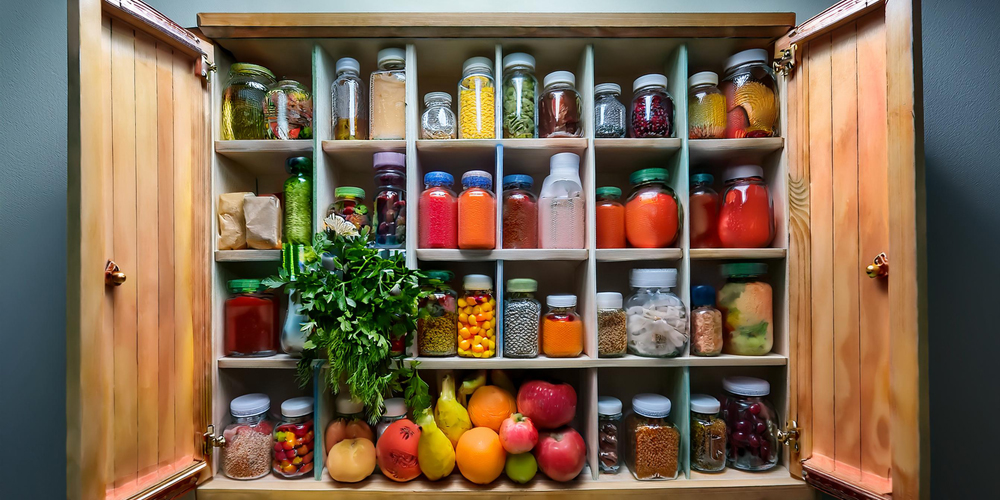Natural health is under attack and here we argue that investing in healthy eating will pay off in the long run—both for your wallet and your well-being.
THE TOPLINE
- Eating fresh, whole foods can prevent chronic diseases like diabetes, heart disease and cancer, which could save billions annually in healthcare costs.
- Simple, cost-effective strategies including prioritizing preparing whole foods at home, nutrition education, and stress management can help make healthy eating achievable for everyone.
We all lead busy lives, and the convenience of prepared or processed foods—quick, affordable, and requiring little effort—can be hard to resist. Eating a healthy diet often feels like an overwhelming challenge, especially when cost seems like a major hurdle. But is eating healthy really as expensive as it’s made out to be?
A recent opinion piece from the American Council on Science and Health wonders aloud whether the “Food is Medicine” message being espoused by many in the natural health movement (including ANH) but particularly HHS Secretary nominee Robert F. Kennedy Jr. is the “new snake oil.” The article strikes at something many Americans may feel: healthy eating is a luxury only the wealthy can afford. Critics argue that fresh produce is too expensive and impractical compared to the convenience and affordability of processed foods. But these claims appear to be part of a concerted attack on natural health, and they overlook critical nuances. In reality, eating healthy doesn’t have to break the bank, and the long-term health benefits far outweigh the short-term costs. Here’s why investing in fresh, whole foods is not only achievable but also essential for a healthier society.
Attacks on Natural Health
There are many attacks on natural health ongoing at present, especially when increased understanding of natural health leads to a downturn in business for big food ultra-processed foods or drug manufacturers. Here are just two recent examples.
The American Heart Association and many other organizations supporting the refined seed oils that are used in processed foods are attempting to debunk concerns over the risks of seed oils, as shown here. This article by nutrition researcher and ANH friend Dr. Zoe Harcombe explains what motivates these attacks and why they are baseless.
There has also been significant pushback to the notion that food can be medicine in cancer support or treatment. Dr. Liz O’Riordan, a British breast cancer surgeon and survivor, stated in Newsweek: “You cannot cure cancer by diet alone…There is no diet that can cure cancer. The only thing proven to cure cancer is surgery, and then we do chemotherapy and radiotherapy to reduce the risk of it coming back.” This statement was in part a reaction to bestselling books like How to Starve Cancer by another ANH friend and cancer survivor, Jane McClelland, who advocates for individualized, diet-based, and other non-standard-of-care approaches to cancer treatment. McClelland’s work does not claim that a single diet cures all cancers but instead explores metabolic therapies that complement traditional treatments.
Our crony system (big food, big pharma, and the government agencies overseeing these industries) wants disease treatment, cure, and prevention to be the sole preserve of licensed drugs. That’s the pay-to-play system that has evolved over the last 60 or so years in the USA, Europe, and in almost all other countries.
The Real Price of Poor Health
The financial argument against healthy eating often focuses on the upfront costs of fresh produce compared to calorie-dense, processed foods. For starters, this perspective fails to account for the hidden costs of poor nutrition. Diets high in processed foods—often derived from heavily subsidized commodity crops like corn and soy—are directly linked to chronic diseases such as diabetes, heart disease, and obesity.
These preventable conditions cost the U.S. economy trillions of dollars annually in healthcare expenses and lost productivity. This is not an exaggeration: according to the CDC, 90 percent of the annual $4.1 trillion in healthcare expenditure is for managing and treating chronic diseases and mental health conditions. Americans spend hundreds of billions of dollars a year on prescription drugs ($778 billion in 2021 alone). Efforts to get Medicare to cover weight-loss drugs are projected to increase the program’s cost by as much as $6 billion per year.

By contrast, nutrient-dense fruits and vegetables can prevent these conditions, offering a long-term return on investment. To take one example: research has shown that 80 percent of chronic disease and premature death could be prevented by lifestyle changes (not smoking, being physically active, and adhering to a healthful dietary pattern).
Even when considering the cost of healthy eating, research shows the difference is modest. A 2013 meta-analysis by Harvard’s School of Public Health found that the healthiest diets cost about $1.50 more per day than the least healthy ones. That’s less than $550 per year—an investment that pales in comparison to the costs of managing chronic diseases.
Time and Stress
Critics often cite the time required for shopping, meal planning, and cooking as significant barriers to healthy eating. It’s true that preparing meals from scratch takes effort. But here’s some food for thought (no pun intended): research from economists Mark Aguiar and Erik Hurst reveals an increase in leisure time over recent generations, and not just among the wealthy. This suggests that lack of time may not be the primary barrier—it’s often stress and prioritization.
Stress, especially among lower-income individuals, plays a significant role in poor dietary choices. Chronic stress increases cortisol levels, which trigger cravings for simple carbohydrates and sugary foods, perpetuating unhealthy eating habits. Addressing these underlying stressors is as crucial as making healthy food accessible. Here are some tips for managing stress from our colleagues at the Alliance for Natural Health International.
The Alliance for Natural Health’s Mission
We want to be clear: our mission is to fight for a healthcare system that prioritizes prevention and empowers individuals to take control of their well-being through informed choices. We are not here to judge or lecture anyone about their dietary habits or financial constraints, or to suggest that getting sick is a choice. We seek to educate people on how food can serve as medicine, helping to prevent chronic disease by addressing its root causes. Our focus is on ensuring that everyone has access to the knowledge and resources needed to make informed, healthy decisions for themselves and their families. That’s why we think it’s so important to dispel harmful myths about healthy eating and to recognize that drugs are not the only means of treating, mitigating, or preventing disease.
The Bottom Line
The argument that healthy eating is too expensive or just another form of snake oil simply doesn’t hold up when you consider all the available evidence and the bigger picture. While whole vegetables, fruit, nuts, fungi, algae, and fermented foods may have higher upfront costs, they are an investment in long-term health and well-being. By addressing systemic issues like nutrition education, public health guidance, subsidies, stress, and accessibility, we can come full circle back to the “Food as Medicine” philosophy that has stood the test of time and is now supported by a very robust and still growing body of scientific evidence.
Please share this article widely with your friends, family, and wider networks.





We have used food as medicine since the dawn of time
It is the only true way
Unless medical intervention is absolutely necessary
This is fabulous! It is about time that this message gets out there. As a physician with over 40 years in practice, I have ample experience to know that except for acute critical care and infections, ALL drugs are harmful and they do not contribute to achieving optimum health.
It is ironic that currently the pharmaceutical companies are promoting drugs to treat obesity which has been caused by decades of high calorie, nutrition poor food.
This battle MUST begin by reimplementing health education in schools. When that was removed in the 1960s vending machines were placed in schools and the gradual increase in poor health at ALL AGES and obesity began. This is criminal and must be stopped but it must begin with proper education and a return to farming that produces nutrient rich food.
Food as medicine is something all of us need to invest in. It will help us to have long life and enjoy our children and grand children.
Thank You William Brashier.
Of course healthy food is a “luxury” because that is the way it has been set up and depicted in a societal culture that doesn’t think a vegetable (be it kale or a squash or an apple) is food; and doesn’t think an animal that we eat, needs to be treated like a living being in order to contain essential nutrients; and the kids think drinking a “tea” for an upset stomach is “weird” but that neon-pink-stuff from the drugstore is a great idea. So of course the mainstreamed sanctioned disinformation will naturally follow that it isn’t necessary – hey corn syrup is no different than honey – and that it is class-ist to promote fresh real food.
Wow. New World Order enslavement.
As usual, medical doctors of the woke intelligencia class will not stand up for basic observable facts and support such insanity.